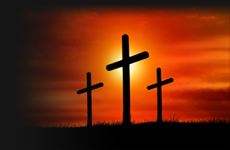
Unlocking The Old Testament
Genesis 6
David Pawson, looking into Genesis, notes that Joseph is the 4th generation - great-grandson of Abraham. There is a clear pattern. The natural heir does not get the blessing. God never calls himself the God of Joseph; angels never appeared to Joseph; his brothers are not rejected. God reveals things in dreams to Joseph and gives him their interpretation. There are 4 levels to Joseph’s story - the human level, God’s angle, as a study of Joseph’s character, and Joseph as a picture of Jesus. Abraham, Isaac and Jacob are models of our faith in God; Joseph is a model of God’s response to that faith. The genealogies of Genesis are the genealogies of Jesus. You see Jesus not only in Joseph but in Isaac. He submitted to being put on the altar, but an alternative sacrifice was provided, a ram with its head caught in thorns. King and priest, Melchizedek, brought out bread and wine to refresh Abraham and his troops and Abraham gave him a tenth of the spoils. Jesus implies He is Jacob’s ladder, i.e. the link between Heaven and Earth. God says to the serpent in Eden, the seed of the woman will bruise your head, even while you bruise his heel, implying Jesus would deal Satan a fatal blow someday. In Romans 5, Paul says, “as one man’s disobedience brought death, so one man’s obedience brought life.” Jesus was involved in the creation of and is the reason why for the whole universe. It was made for Him, through Him and by Him.
Exodus 1
David Pawson finds Exodus is the story of the biggest escape in history. Over 2 million Hebrew slaves escape from one of the most highly fortified nations in the world. It was a series of miracles. Moses saw more miracles than Abraham, Isaac and Jacob put together. Exodus has national and spiritual significance. In Exodus the people are told God’s name and when we know someone’s name, the relationship becomes more intimate and personal. In Exodus, the Creator of everything becomes the redeemer of a few people. Exodus begins Moses’ lifetime. The first half of Exodus is about what God did on their behalf. The second half is about what God said, and how they were to live now that they were free. The first half demonstrates God’s grace towards them in getting them out of their problems, so the second half expects them to show their gratitude by living His way. We are redeemed first and then taught to live right. The people of Israel are set free to serve God. We are also set free to serve God, not to do our own thing. The plagues showed that the God of the Hebrew slaves was much more powerful than the Egyptian gods. God only hardened Pharaoh’s heart after Pharaoh had repeatedly hardened his own heart. If we persistently choose the wrong way, God will help us along that route to demonstrate His judgement - if we refuse to be a demonstration of His mercy.
Select Pages
1 2 3 4 5 6 7 8 9 10 11 12 13 14 15 16 17 18 19 20 21 22 23 24 25 26 27 28 29 30
